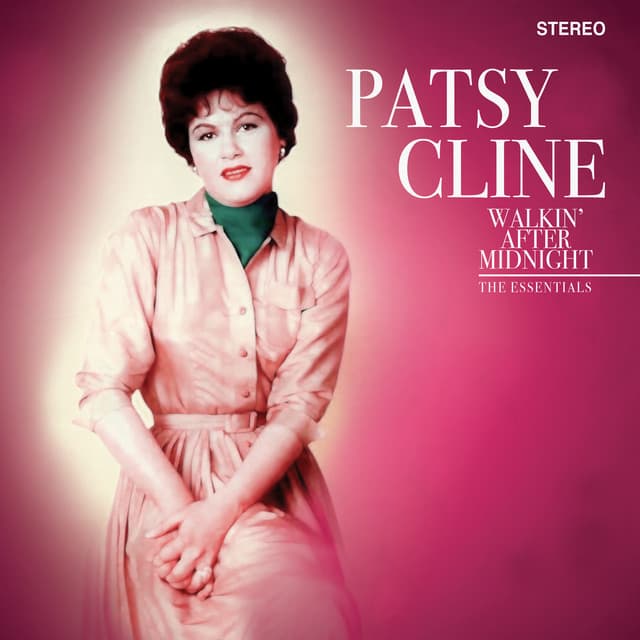
That Restless Search for a Lost Love in the Still of Night
Let’s journey back to a pivotal moment in American music, a time when the soulful cry of country met the broad appeal of pop, forever changing the landscape of popular sound. In that era, one voice rose above the rest, rich with emotion and undeniable authenticity: Patsy Cline. Her voice, a rare blend of power and vulnerability, could effortlessly convey heartache, longing, and strength, making her an icon whose influence continues to resonate decades later. Today, we’re stepping into the quiet hours of reflection as we revisit one of her most legendary and groundbreaking hits: “Walkin’ After Midnight.”
“Walkin’ After Midnight” was initially released in 1957, a truly defining year for Patsy Cline as it marked her major breakthrough into both country and pop charts. The song was featured on her debut album, “Patsy Cline,” which was released in August of the same year. As a single, “Walkin’ After Midnight” was a massive success, soaring to number 2 on the Billboard Hot Country & Western Sides chart and making a significant crossover impact by reaching number 12 on the Billboard Top 100 pop chart. This crossover success was groundbreaking for a country artist of her time, establishing her as one of the first true country-pop fusion stars. Its widespread popularity immediately cemented her as a formidable talent, proving her appeal extended far beyond traditional country music audiences.
The story behind “Walkin’ After Midnight” is a fascinating one, born from a blend of serendipity and a touch of reluctance. The song was written by Don Hecht and Alan Block, who had initially written it as a pop tune. Patsy Cline, known for her strong will and clear artistic vision, initially disliked the song and was hesitant to record it. She felt it wasn’t “country enough” for her. However, her record label, Decca, insisted she record it for a talent show appearance on Arthur Godfrey’s Talent Scouts. Against her instincts, she performed it, and the audience response was overwhelming, leading to a deluge of requests for the record. This immediate public demand convinced her and the label to release it as a single. The song’s instrumentation, particularly the distinctive bassline and the swing rhythm, blended country elements with a jazz-tinged pop sensibility, creating a unique sound that perfectly showcased Cline’s versatile voice.
The meaning of “Walkin’ After Midnight” is a poignant portrayal of restless longing and the inability to find peace after a love has gone. The lyrics depict the singer aimlessly walking through the night, a silent witness to her profound loneliness and the lingering presence of a lost love. The “midnight” setting is crucial; it’s a time of introspection and vulnerability, where thoughts and emotions are amplified in the quiet hours. The singer’s repeated phrase “I go out walkin’ after midnight / Out in the moonlight, just like we used to do” highlights the persistent memory of a past relationship and the desperate hope of somehow conjuring it back. It’s about searching for a tangible sign or a phantom presence of the one who is no longer there. For older listeners, this song evokes memories of sleepless nights spent yearning, of the quiet desperation that accompanies a broken heart, and the almost ritualistic search for solace or a sign in familiar places. It captures that universal ache for what once was and the restless spirit that refuses to let go.
Listening to “Walkin’ After Midnight” today is to be enveloped by Patsy Cline’s sheer vocal genius. Her voice, husky and powerful yet incredibly tender, conveys every nuance of the song’s melancholic beauty. The understated instrumentation provides the perfect backdrop, allowing her voice to truly soar and fill the emotional landscape. It transports us back to a time when songs were crafted with meticulous care and delivered with an honesty that cut straight to the heart. This song isn’t just a country classic; it’s a timeless testament to the enduring pain of separation and the universal human experience of searching for comfort and closure in the lonely hours of the night, forever cemented in the annals of music by an unforgettable voice.